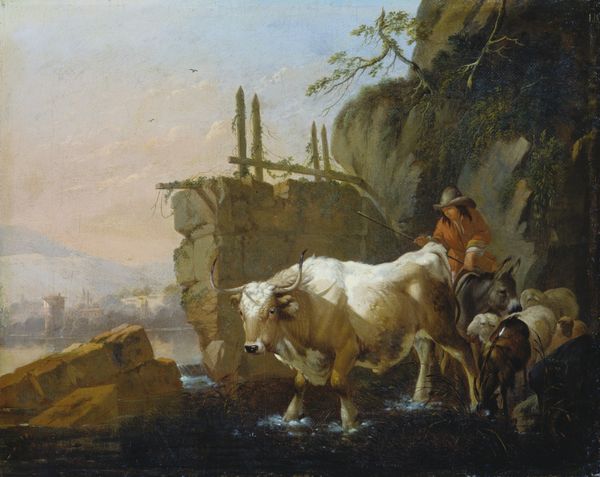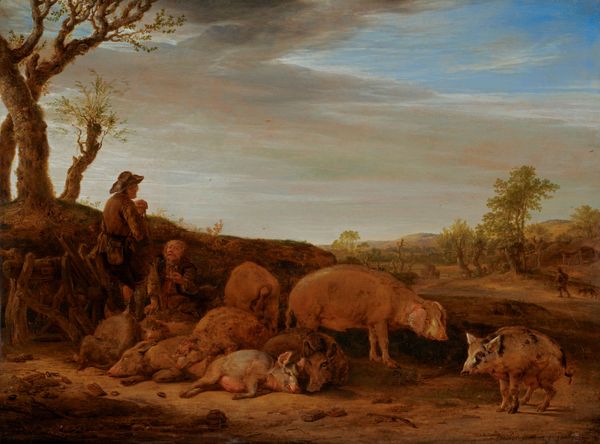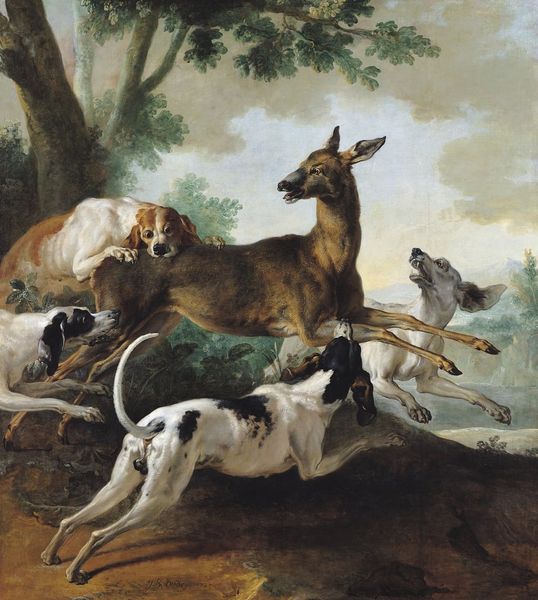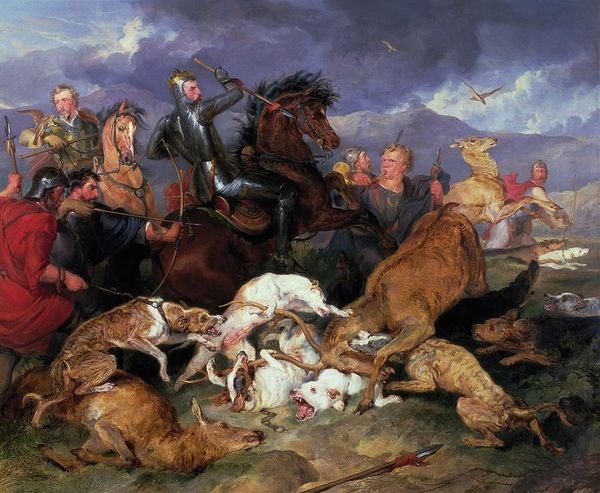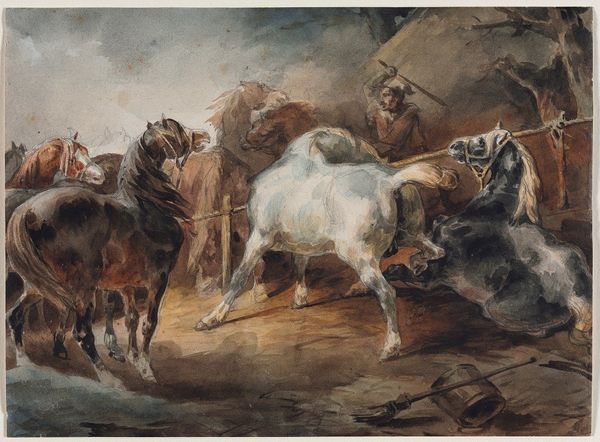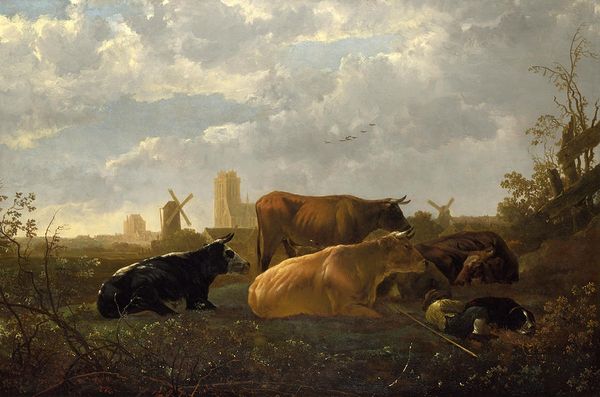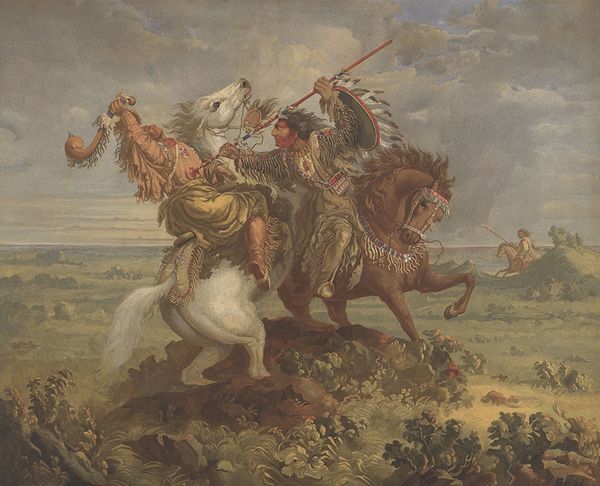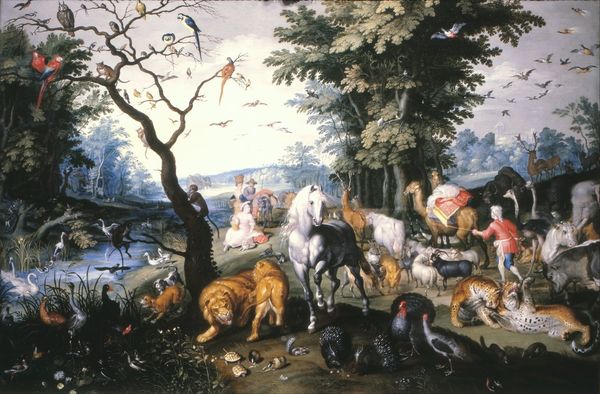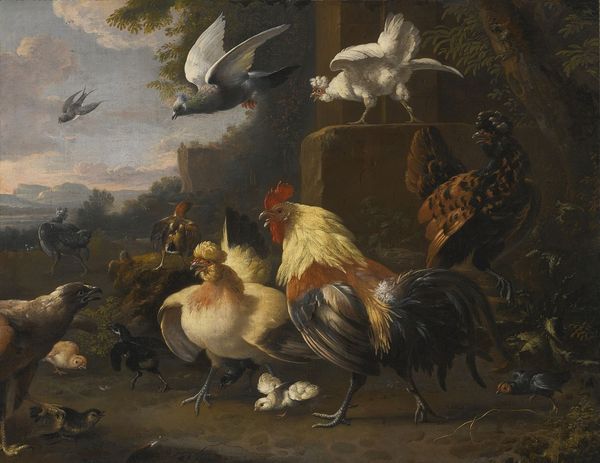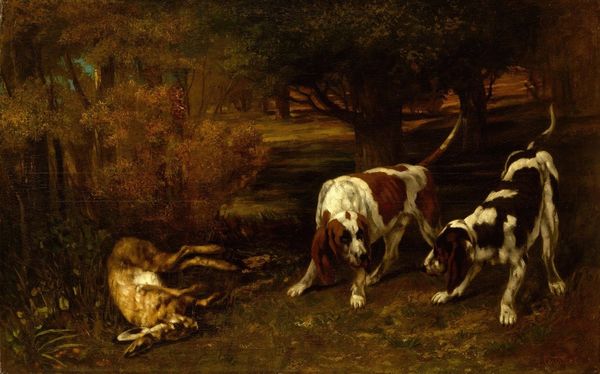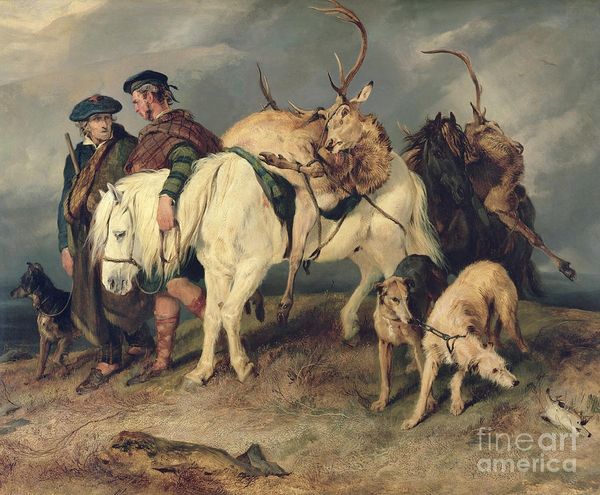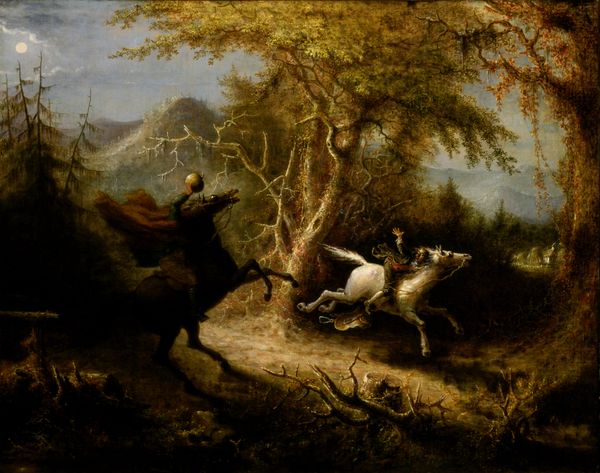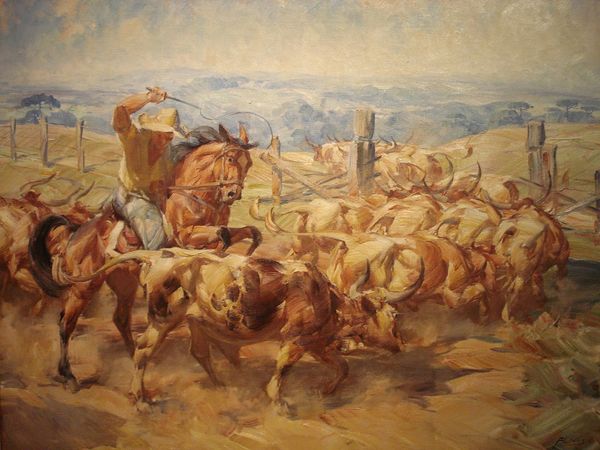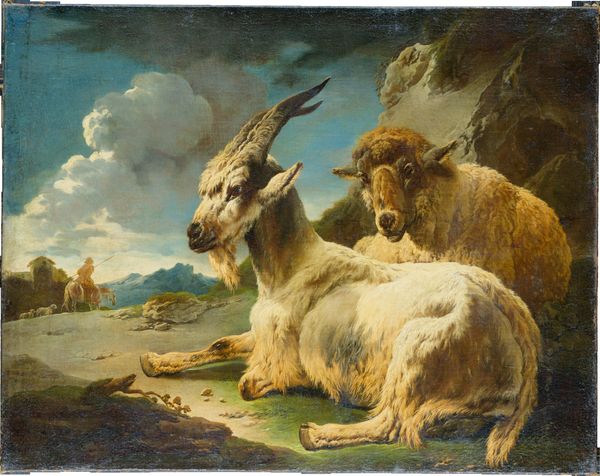
painting, oil-paint
#
narrative-art
#
painting
#
oil-paint
#
landscape
#
figuration
#
romanticism
#
genre-painting
#
realism
Dimensions: height 256 cm, width 363 cm
Copyright: Rijks Museum: Open Domain
Editor: This oil painting, "Hungry Wolves Attacking a Party of Riders" by Eugène Verboeckhoven, dated 1836, is quite chaotic. There's a real sense of panic. What strikes you when you look at it? Curator: The interesting aspect of this piece is its materiality. It depicts a wolf attack, yet it was likely commissioned by someone of considerable wealth to be hung in a domestic setting. Consider the socioeconomic disparity here – the raw reality of animal predation commodified into entertainment. What are the conditions, both the labour and materials, that would make this possible? Editor: So you're less focused on the drama of the scene and more on… how it was made and who would buy it? Curator: Exactly. The romanticized drama is superficial. Think about the pigments themselves. Where did they come from? How were they processed? And who was profiting from that production? These factors contributed to the creation and reception of the painting, embedding social and economic relationships within its very fabric. How does the medium itself shape the message, I wonder? Editor: I hadn't considered that. I was caught up in the riders' plight. But framing it like that… it feels much more critical, and perhaps reveals an uncomfortable truth about wealth and detachment. Curator: Indeed. Verboeckhoven's piece offers us an opportunity to analyse the raw materials of both art and society at the time. The wolves and riders might represent two different classes and their perpetual struggles! Editor: It’s fascinating how shifting the focus to the material and its production can unlock so many new layers of meaning.
Comments
No comments
Be the first to comment and join the conversation on the ultimate creative platform.
